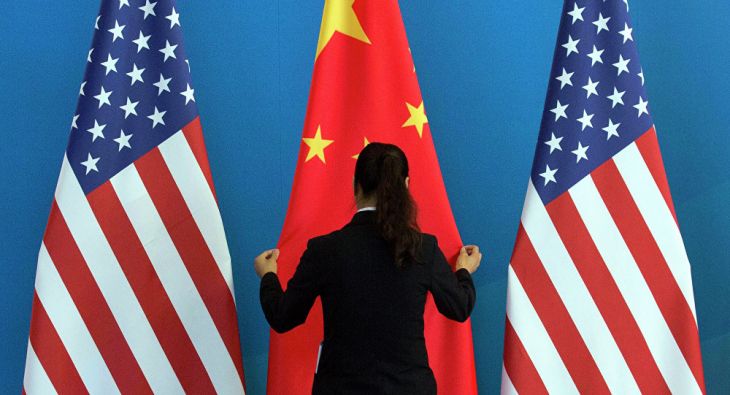The ability to shape another country’s policies through the transfer of ideas rather than force is known as “soft power”. Although the Chinese have been practicing “hard power” against their own Uyghurs and threatening to do the same against Taiwan, they have also been extremely successful in peddling soft power in the United States’ back yard – South America.
When Chinese President Xi announced the Belt and Road initiative in 2013, the concept caught hold in Asia, Africa, and Europe. By the time that he expanded the concept to include a digital belt and road in 2018, Latin America and the Caribbean were firmly on board at a time when the Trump administration was all but ignoring its own back yard. The notable exception was the issue of illegal migration from its southern border with Mexico.
Chinese penetration of Latin America has not only been far reaching from an investment point of view but has also contributed to diplomatic successes.
Panama, the Dominican Republic, and El Salvador shifted their diplomatic relationship from Taiwan to Beijing in 2019, and other Larin American countries like Honduras that still recognize Taipei are slowly opening to mainland China.
This is soft power at its best.
China is Latin America’s second most important export market after the United States.
Exporting raw materials to feed China’s industrial and technology base provides the Chinese with the inputs required to produce many of the hi-tech products that it exports globally.
According to Jorge Malena, writing in the Council on Foreign Relations website on January 19, 2021, an example of Chinese market penetration is Huawei, which entered Brazil’s market in 1996 and became the country’s largest network equipment supplier in 2014. Huawei also cooperates with universities and scientific research institutions in Brazil to establish joint laboratories, network technology colleges, and project cooperation; its R&D and training center in Campinas, São Paulo, trains more than 2,000 people every year.
Since 2005, Chinese policy banks have provided more than $141 billion in loan commitments to Latin America—exceeding, in several years, the lending of the World Bank, the Inter-American Development Bank, and the CAF Development Bank of Latin America combined.5 China is also becoming an increasingly important foreign direct investor for the region, especially through mergers and acquisitions.
The extension of Chinese culture and language exposure through its Confucius Institutes, in partnership with a wide array of Latin American universities, is creating a strong public opinion base from which to influence future decision makers.
And China’s generosity in providing Covid-19 vaccines is helping to create a new mindset among many Latin Americans who find that the quick Chinese response to their domestic crises is in sharp relief with the limited support provided by Washington to date.
As well, Beijing has been successful in using fully funded scholarships to prestigious Chinese universities, and exchange programs, to directly expose government officials, politicians, academics, journalists, and students from the region to China’s remarkable economic growth, poverty reduction, and innovation, all of which can make a positive impression on visitors.
China’s meteoric rise and seeming lack of involvement in governance appeals to many in Latin America and the Caribbean with a tragic history of corruption, poverty, inequality and low growth and stands in sharp relief with traditional and overwhelming U.S. involvement in their domestic affairs.
It also does so without forcing a free media, free and fair elections, and respect for human rights on its recipients – issues that have become a basis for the West’s relationships in the region.
China has replaced much of the ideology of the sixties with 21st century common sense – using enterprise to forge new and profitable relationships with the region without appearing to interfere in its governance structures.
All this could threaten U.S. interests in the region.
While the current U.S. administration appears to be focused on Europe and Asia, its own backyard risks becoming a Chinese economic playground.
The Chinese are not interested in military of political conquest. They seek to manage relationships through the effective use of infrastructural investment and soft power.
Chinese harbors, railway lines, airports and energy producing plants will continue to expand throughout the region, as will the digital infrastructure that they are putting in place. So will Chinese influence without the force of arms.
Chinese investment flows will undoubtedly enhance significantly the region’s physical and digital connectivity both regionally and globally.
Can the United States afford to compete with China at this level when its own infrastructure is deficient, and the administration is having a difficult time in getting its plans passed into law?
But then again, can the U.S. afford to avoid competing with the Chinese in their own back yard?
Most importantly, will Latin American countries realize the opportunities that they have missed and that they will miss if they continue along the current path of governance absent any of coherent national and continental industrial development policies? Will they simply be trading one benefactor for another thereby only becoming beholden to yet another master?
That all remains to be seen.
Edición: Laura Espejo
Proyectos realizados en el país tendrán incentivo fiscal de 30 % del ISR
La Jornada Maya
El célebre “Jefe Ratonero del Gabinete” ha servido a seis primeros ministros y se mantiene como figura entrañable del poder británico
Ap
El plan urbano propone una visión participativa y sostenible, abierta a ajustes mediante consulta ciudadana
Rosario Ruiz Canduriz
Comparsas, batucadas y carros alegóricos animaron el arranque; saldo blanco y amplia participación ciudadana
La Jornada Maya
